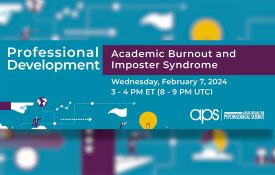-
A Leading Memory Researcher Explains How to Make Precious Moments Last
Our memories form the bedrock of who we are. Those recollections, in turn, are built on one very simple assumption: This happened. But things are not quite so simple. “We update our memories through the act of remembering,” says Charan Ranganath, a professor of psychology and neuroscience at the University of California, Davis, and the author of the illuminating new book “Why We Remember.” “So it creates all these weird biases and infiltrates our decision making. It affects our sense of who we are.” Rather than being photo-accurate repositories of past experience, Ranganath argues, our memories function more like active interpreters, working to help us navigate the present and future.
-
As Prices Increase During a Recession, Mental Health Usually Decreases
In periods of economic recession, negative mental health symptoms like depression, anxiety, panic attacks, and self-harm tend to increase, according to a study in Behavioral Sciences. Adverse changes in the labor market create wage cuts and layoffs. And for those who remain employed, decreased workplace safety standards and increased workloads are catalysts for poor mental health outcomes like worthlessness, anxiety, shame, and frustration. “High inflation typically causes anger and frustration, especially toward elected officials,” says Jim Butkiewicz, macroeconomist and economics professor at the University of Delaware.
-
What We’ve Learned Through Sports Psychology Research
Since the early years of this century, it has been commonplace for computerized analyses of athletic statistics to guide a baseball manager’s choice of pinch hitter, a football coach’s decision to punt or pass, or a basketball team’s debate over whether to trade a star player for a draft pick. But many sports experts who actually watch the games know that the secret to success is not solely in computer databases, but also inside the players’ heads. So perhaps psychologists can offer as much insight into athletic achievement as statistics gurus do. Sports psychology has, after all, been around a lot longer than computer analytics.
-

Couples Who Laugh Together, Stay Together
Podcast: In this episode, psychological scientists Norman Li and Kenneth Tan illuminate how the mutual creation and enjoyment of humor serves as crucial markers of relationship well-being.
-

Professional Development Workshop: Belonging and Success in Work Settings
In a February Professional Development workshop, Danielle King and Kecia M. Thomas discussed imposter syndrome, academic burnout, and best practices for sustaining and supporting yourself during hard times.
-
Identifying Talent in Business, Sports, and Education
A new paper published in Frontiers in Psychology: Performance Science led by Andy Parra-Martinez at the University of Arkansas “describes the general status, trends, and evolution of research on talent identification across multiple fields globally over the last 80 years,” by drawing from the Scopus and Web of Science databases and conducting a bibliometric analysis of 2,502 documents. Bibliometric analysis is a way of understanding the structure and citation patterns of research around a given topic, in this case, talent identification research. ...

